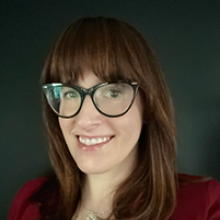A Quick Word with Jill Young on the Readiness Projects
Youth live, learn, work, play, and make meaning in many different settings and systems. Recent cross-disciplinary research in neuroscience, psychology, sociology, and other fields offers insights into what it takes for youth to thrive.
The Readiness Projects—a partnership of the Forum for Youth Investment, the National Urban League, and AIR—advances work informed by science and grounded in practice. In this Q&A, Jill Young, senior researcher at AIR, discusses how the Readiness Projects can support equitable opportunities for youth.
Q: What are the Readiness Projects, and how do they aim to help young people?
Young: The goal of the Readiness Projects is to support youth thriving by upending inequities, embracing science-informed strategies, and accelerating the progress of existing initiatives.
We focus on helping practitioners put into action what the science of learning and development tells us about how young people learn, develop, and thrive. For example, we are working with several national youth development organizations, such as the Boys & Girls Club of America, to develop illustrative examples of how they integrate principles of whole child design into their organizational and program practices.
We are also developing a Youth Fields Workforce Survey. The survey will provide reliable information for policy, practice, and research efforts to understand, strengthen, and support those who work in youth fields. These individuals—such as youth workers, child care providers, and museum educators—are an essential component in supporting young people.
- Advance accessible and memorable (“sticky”) narratives about how science and research on learning and development can be used to advance equity and thriving.
- Amplify the voices of youth and community leaders and ask how a more robust approach to equity and thriving can support and refine their agendas.
- Emphasize that all adults are an essential component to learning in all settings.
- Work toward establishing a “thriving youth” field, as a way to align work across systems and support, connect services, challenge harmful policies, and transform systems.
Q: How do the Readiness Projects define thriving, equity, and learning and development?
Young: The Readiness Projects coordinating partners wrote and released a paper to connect and provide expanded definitions of thriving, equity, and learning.
- Thriving includes not only well-being (how you’re doing in life) but also grounding (knowing who you are) and agency (having the skills, knowledge, and beliefs to tackle life’s challenges).
- Instead of simple equity, we encourage those working in youth fields to move toward robust equity. This requires intentional action to counter inequality, institutionalized privilege and prejudice, and systemic deficits.
- Transformative learning and development goes beyond the idea of learning as processing and acknowledges the skills required to translate specific experiences and content into generalizable knowledge, competencies, and perspectives.
In our paper, we consider these three expanded concepts together as a formula, in which we declare a goal and strategy for achieving it: Transformative Learning & Development X Robust Equity = Thriving Youth. In this formula, relationships and experiences are the multipliers (i.e., the X). We hope that this formula helps educators and practitioners understand what helps youth thrive. All youth have the potential to thrive when we design and support equitable learning environments. Context matters: experiences, relationships, and environments deeply shape how young people learn and develop. We all play a role, as systems and individuals, in designing and supporting equitable learning environments for young people.
Q: How do you envision the paper informing the field?
Young: We consider this paper a starting point for youth-serving systems and adults within those systems to reflect on current research, policies, and practices. We hope they will not only recognize but also embrace the power we all have to influence youth thriving and success. We also hope that by presenting the research, we will spur researchers, policymakers, and practitioners into taking action to create opportunities for transformative learning and development that are equitable and support thriving and success among young people.
